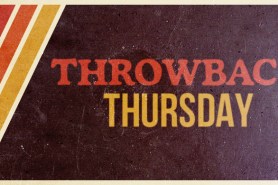U.S. President Donald Trump on Wednesday signed an executive order for global so-called “reciprocal tariffs” Wednesday, but Canada is not included in the latest round of what could be the biggest global trade war in almost a century.
A White House fact sheet released shortly after Trump announced the policy said existing tariffs on Canada and Mexico “remain in effect” — including exemptions — “and are unaffected by this order.”
“This means USMCA compliant goods will continue to see a zero per cent tariff, non-USMCA compliant goods will see a 25 per cent tariff, and non-USMCA compliant energy and potash will see a 10 per cent tariff,” the statement said, using the acronym for the United States-Canada-Mexico Agreement that dictates North American free trade rules, which Canada refers to as CUSMA.
“In the event the existing fentanyl/migration IEEPA orders are terminated, USMCA compliant goods would continue to receive preferential treatment, while non-USMCA compliant goods would be subject to a 12 per cent reciprocal tariff.”
Prime Minister Mark Carney, who was expected to announce countermeasures on new U.S. tariffs Wednesday evening, said the federal government would have more to say on Canada’s response on Thursday.
Carney pressed pause on his election campaign as Liberal leader for a second time in less than a week to coordinate a response to Trump’s announcement.
The existing tariffs on Canada and Mexico were imposed on March 4 under the International Emergency Economic Powers Act (IEEPA), which Trump says allows him to use tariffs to address a national emergency — in this case, the flow of fentanyl in to the U.S.
Trump announced an exemption for USMCA-compliant goods, particularly auto parts, that was set to end on Wednesday.
“For Canada and Mexico, the existing fentanyl/migration IEEPA orders remain in effect, and are unaffected by this order,” the White House said.
The U.S. is setting a “minimum baseline tariff rate” of 10 per cent, Trump said, which means each country that charges tariffs on American goods will at least get a tariff rate of 10 per cent on its goods going into the U.S.
“We will charge them approximately half of what they are and have been charging us. So the tariffs will be not a full reciprocal. I could have done that, yes, but it would have been tough for a lot of countries. We didn’t want to do that,” Trump said.
Trump said the reciprocal tariffs will not be one-for-one but will take into account the tariffs and other trade measures other countries put in place on U.S. products, with some countries getting hit with a bigger tariff than others.
Holding up a chart in front of a gathered crowd outside the White House, Trump said China was at top of his list of reciprocal tariffs and will be charged a tariff rate of 34 per cent.
Trump mentioned a list of nearly 200 countries and trading blocs, including the European Union, India and the United Kingdom, that will be facing the “reciprocal” tariffs.
The list did not, however, mention Canada and Mexico. Russia was also not included.
Trump said his move to launch tariffs would be remembered as “Liberation Day.”
“This is one of the most important days, in my opinion, in American history. It’s our declaration of economic independence,” Trump said.
The U.S. is also launching sector-specific tariffs on vehicle imports, including against cars made in Canada and Mexico, which Trump confirmed will begin Thursday.
“Effective at midnight, we will impose a 25 per cent tariff on all foreign made automobiles,” he said.
Trump said with this latest trade policy, the U.S. would “pry open foreign markets and break down foreign trade barriers.”
Some of the new rates that the United States will charge other countries include:
- China – 34 per cent
- European Union – 20 per cent
- Japan – 24 per cent
- India – 26 per cent
- Vietnam – 46 per cent
- Israel – 17 per cent
- United Kingdom – 10 per cent
Some of the highest rates of tariffs are being charged against some of the world’s poorest countries, including Bangladesh (37 per cent), Sri Lanka (44 per cent), Laos (48 per cent) and Botswana (37 per cent).
The highest rate, 50 per cent, is being charged to the southern African country of Lesotho.
Carney told reporters in Ottawa that Trump’s new tariff policy will “fundamentally change the international trading system” and have growing “negative” economic impacts on Americans and Canadians.
He said Canada will fight back against existing tariffs and the duties on autos that begin Thursday, as well as future tariffs on “strategic sectors” like pharmaceuticals, lumber and semiconductor chips.
“We are going to fight these tariffs with countermeasures,” he said. “We are going to protect our workers, and we are going to build the strongest economy in the G7.
“In a crisis, it’s important to come together and it’s essential to act with purpose and with force. And that’s what we will do.”
Carney said he will have more to say about Canada’s response Thursday after convening the federal cabinet committee on Canada-U.S. relations and speaking with Canadian premiers.
He did note, however, that Trump “has preserved a number of important elements of our relationship” with the U.S., echoing the cordial tone he struck after speaking directly with Trump for the first time last week.
The U.S. has so far imposed 25 per cent tariffs on all Canadian goods, as well as an additional 25 per cent on steel and aluminum imports and a 10 per cent levy on Canadian energy imports.
Canada has already responded to Trump’s trade actions with counter-tariffs on almost $60 billion worth of American goods, which were announced in retaliation for the 25 per cent tariffs on all Canadian goods and a subsequent round that was retaliation for the steel and aluminum tariffs.
After Trump announced his one-month suspension of the March 4 tariffs, Ottawa paused a larger, $125-billion round of retaliatory levies until Wednesday to allow for negotiations with the Trump administration.
It was not immediately clear if that package remains on the table.
The trade war has become a key campaign focus for all the main federal parties in the general election. Canadians are set to go to the polls on April 28.
Conservative Leader Pierre Poilievre has said the country needs to stand up to Trump and NDP Leader Jagmeet Singh has urged support for workers who will be impacted by the tariffs.
Delivering a keynote address in Toronto Wednesday, Poilievre said Canada’s immediate response to the new tariffs should include ”targeted reciprocal tariffs” that “maximize impact on the Americans while minimizing impact on ourselves.”
Poilievre said Canada should prioritize protecting Canadian jobs and in the long-term “build our economic fortress in Canada so we are never vulnerable to these kinds of threats again.”
Poilievre said Canada should also work to end the trade dispute after the election, pledging to work towards renegotiating the Canada-United States-Mexico Agreement.
“We should set a firm date to finalize a new deal and I will propose that both countries pause tariffs while we hammer out that deal.”
Singh called Trump “an arsonist,” saying the U.S. president is setting fire to both the U.S. and Canadian economy through his trade war.
To protect Canadian workers impacted by the tariffs, the NDP is committing to make sure that Employment Insurance covers enough of their salaries, Singh said.
“We will not back down, we will not give up and we will win this fight,” he told reporters in Winnipeg Wednesday.
Bloc Quebecois Leader Yves-François Blanchet said counter-tariffs should be “surgically chosen with some exceptions” because some parts of the economy are “very fragile.”
“Those counter-tariffs could be the end of them, so we have to be careful and strong at once,” Blanchet told reporters in Causapscal, Que., Wednesday.
The Bloc is also proposing Canada enters into deals with Mexico and some European countries to press the U.S. to “bend the knee at the end of the day,” Blanchet said.
Ontario Premier Doug Ford reiterated that Trump’s trade action will hurt U.S. workers ahead of Trump’s announcement Wednesday, warning in U.S. media interviews that the tariffs will spark job losses across America.
However, after Trump’s announcement, the premier postponed a planned press conference of his own for Thursday morning that was expected to lay out Ontario’s latest response to tariffs. His office confirmed he will chair the meeting of premiers and federal officials, including Carney.
Ford said the lack of additional tariffs for Canada was “positive news” but acknowledged events “change hour by hour, day by day.
“I think that’s good news actually when we aren’t named on that list,” Ford said.
—With additional files from Global’s Isaac Callan and Colin D’Mello
© 2025 Global News, a division of Corus Entertainment Inc.








 Ad Choices
Ad Choices